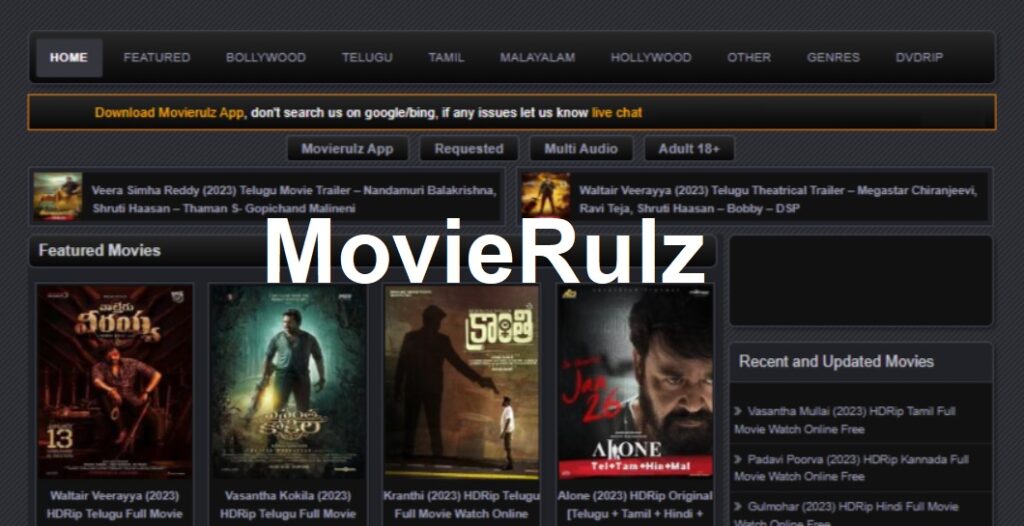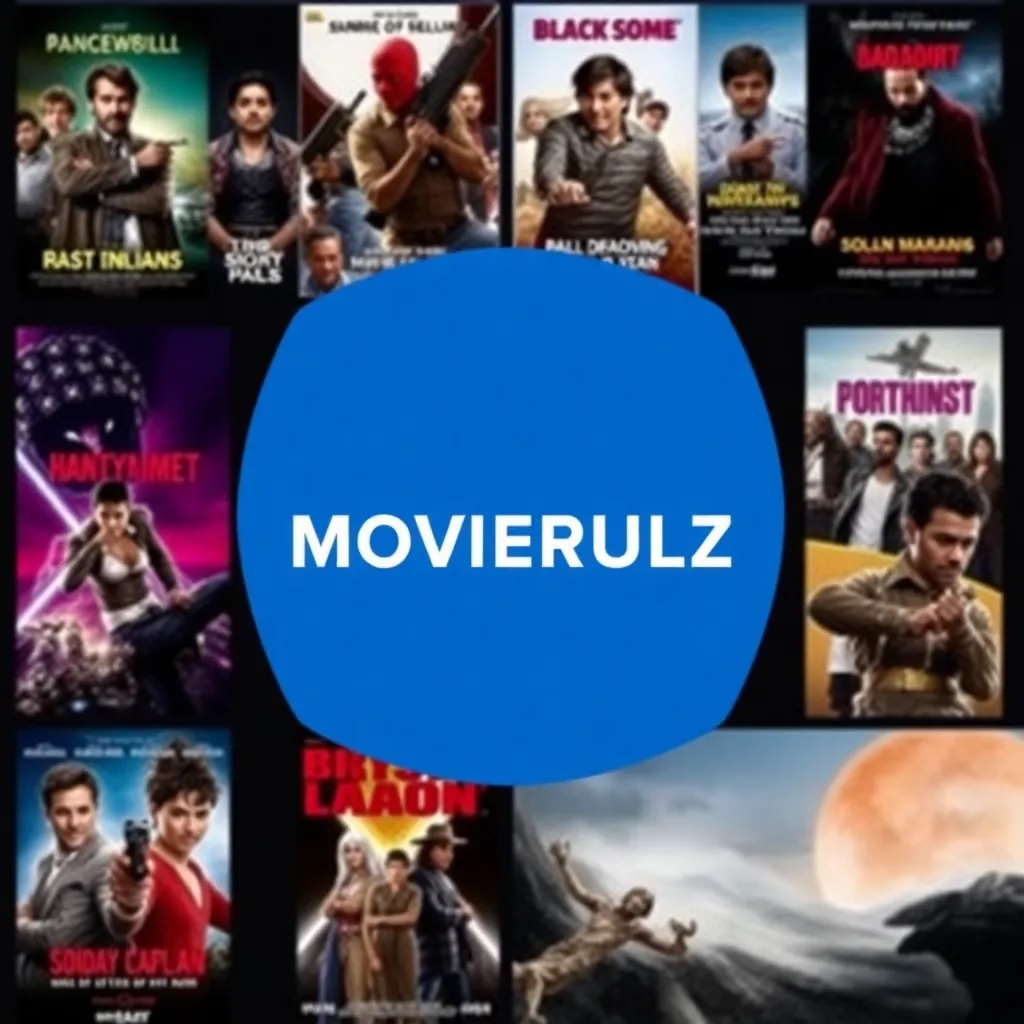Is the allure of instant entertainment truly worth the potential cost? The proliferation of websites offering free access to copyrighted content, like the one we are about to explore, presents a complex dilemma: easy access versus the ethical and legal implications of piracy. The digital landscape is awash with platforms promising the latest movies, web series, and television shows, often in high definition, but the origins and legality of these offerings are not always transparent. This article delves into the murky world of one such platform, examining its offerings, its impact, and the choices viewers face in today's entertainment-driven world.
The contemporary entertainment sphere is a vast and ever-evolving ecosystem, fueled by the constant demand for fresh content. Streaming services, subscription models, and pay-per-view options dominate, yet the allure of free access remains a powerful draw. Platforms like "Movierulz" (and its various iterations) capitalize on this desire, aggregating a diverse collection of films and series from various industries, including Tollywood, Bollywood, Hollywood, and the vibrant regional cinemas of South India (Telugu, Tamil, Kannada, Malayalam). These platforms often claim to offer content in high definition, a feature that further entices viewers seeking an immersive viewing experience.
However, the convenience offered by these platforms often comes at a significant cost. The distribution of copyrighted content without proper licensing constitutes piracy, an act that undermines the creative industries and can have legal ramifications for both the platform operators and the users. While the temptation to access content without paying is understandable, it is essential to be aware of the ethical and legal implications of such choices. The accessibility of content through platforms like "Movierulz" highlights a fundamental conflict in the digital age: the conflict between the desire for instant access and the need to respect intellectual property rights.
The content available on these sites is extensive, encompassing a wide range of genres and languages. From the latest releases to classic films, and from popular web series to niche shows, the platforms typically aim to cater to a broad audience. This comprehensive selection can be particularly appealing to viewers seeking content from various regions or those unable to access certain films through traditional channels. Moreover, the promise of high-quality viewing experiences, as advertised by many of these platforms, further enhances their appeal, especially in a market where high-definition displays and home entertainment systems are becoming increasingly common.
Examining the specific offerings of these platforms often reveals a pattern: they are typically updated frequently to include the most recent releases. This characteristic allows them to capture the attention of audiences eager to watch the latest hits without waiting for official releases or paying for subscription services. This focus on new content makes them a primary source for users interested in staying current with the latest trends in the entertainment industry. Beyond new releases, these platforms also frequently carry older content, creating a library of movies and shows that can be accessed at any time. This extensive catalog ensures a continuous flow of content, which maintains user engagement and increases platform visits.
The business model of many of these platforms hinges on advertising revenue. By hosting a large amount of content and attracting a large number of users, they generate revenue by displaying ads. This can range from simple banner ads to more intrusive pop-up ads, creating a user experience that is often frustrating and potentially dangerous. The ads can be a source of malware or phishing attempts, adding another layer of risk to their use.
These platforms also tend to function as hubs for movie news, reviews, and trailers. They often include sections for movie news, tv news, and reviews, thereby enhancing their role as entertainment portals. This additional content keeps users engaged with the platform and encourages them to stay longer. This strategy increases traffic to the site and provides users with an integrated source for all their entertainment needs. Trailers serve to promote upcoming movies and shows, piquing user interest and ensuring a constant flow of new content on the platform.
The origins and ownership of these platforms are often opaque. They can operate under various domain names, often changing to evade legal restrictions. This characteristic contributes to the uncertainty surrounding their operations. It is also common for these platforms to operate from locations with less stringent copyright enforcement, allowing them to maintain their presence on the internet. This lack of transparency makes it difficult to hold the platforms accountable for the content they distribute.
The legal landscape surrounding these platforms is complex and varies by jurisdiction. They face constant challenges from copyright holders seeking to shut them down. However, the platforms can evade these attempts by relocating servers, changing domain names, or employing various obfuscation techniques. This cat-and-mouse game between copyright holders and piracy websites is a recurring theme in the entertainment industry. Those who access this content may also find themselves at risk of legal action, though the specifics of these risks depend on the location and the laws in place.
Platforms like "Movierulz" claim to offer a wide variety of content, including content such as "Slaughterhouse Rulez," a 2018 British comedy horror film. The film, directed by Crispian Mills and written by Mills and Henry Fitzherbert, features a cast that includes Asa Butterfield, Finn Cole, Hermione Corfield, Michael Sheen, with Nick Frost and Simon Pegg. However, the film's inclusion, as with all content on such platforms, does not guarantee legal distribution rights.
The user experience on these platforms is another key factor to consider. The websites are often cluttered with ads, leading to a less-than-ideal viewing experience. The constant presence of ads, often intrusive and potentially malicious, can interrupt the viewing experience. In addition, the websites' designs and interfaces are often not as user-friendly as legitimate streaming services, which adds to the disadvantages.
The existence of platforms such as these raises questions about the future of the entertainment industry. How will content creators, distributors, and viewers navigate the ever-changing landscape? Will legal streaming services adapt to better compete with the convenience of free access? The answers to these questions are critical as the digital entertainment landscape continues to evolve. As technology improves and the global entertainment market continues to grow, the need for effective copyright protection and a focus on ethical consumption becomes increasingly important.
The rise of these platforms also calls for increased awareness and education. Both creators and consumers must be educated about the legal and ethical implications of piracy. It is important to promote the value of creative work and the importance of supporting the industries that bring these works to life. A broader awareness of the consequences of piracy can lead to more responsible consumption patterns and contribute to a more sustainable and ethical entertainment ecosystem.
Ultimately, the choices we make as viewers have a direct impact on the entertainment industry. By making informed decisions about how we access content, we can support the legal creators and ensure that the industry can continue to thrive. The question for all viewers becomes this: is the short-term gain of free access worth the long-term consequences? The answer to this question will shape the future of entertainment.
The case of "Slaughterhouse Rulez" serves as a microcosm of the issues at stake. By accessing this film, or any other copyrighted content, through illegal means, viewers contribute to the erosion of the creative industries and risk legal action. The film, along with a vast library of other films and series, is freely available on these platforms, creating a tension between accessibility and ethical consumption.
Given the complexities of the current entertainment environment, understanding the legal, ethical, and practical considerations of these sites is critical for anyone who consumes content. It is a challenge to find a balance between enjoying entertainment and supporting the artists and the industries that create it. As technology advances and the digital environment evolves, this balance will determine the future of content consumption.


